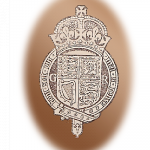In 1916, the UK was growing a scant 20% of its total wheat needs. Bearing in mind that most people eat bread, it made the imported 80% of the ingredients for the nation’s bakery goods vulnerable to attacks from early German submarines. The rapid deployment of U-boats left the British vision of the Blue Water policy in tatters, as policymakers relinquished their once unshakeable belief in the Royal Navy’s invincibility. The country’s agriculture was trailing behind the Netherlands and Denmark, leaving unmet demand for cereals to be patched with shiploads of imports. There was no lack of demand among the hungry cities – British consumers were spending some four hundred million pounds a year on food, a figure bandied about by Christopher Turnor, no less.

The country’s disproportionately extensive grassland was not supporting beef production on a comparable scale to continental Europe. Could it be true, as some hardliners argued, that the fabric of British agriculture had been weakened by years of indifference of, among others, policymakers, but also by a shadowy network of traders, fixers and miscellaneous n’er-do-wells? While British livestock accounted for some 60% of meat consumed by the nation, no less than 80% of the UK’s foreign meat imports shipped from a single port in Argentina, by a single firm based in Chicago, oddly enough.



Leave a Reply